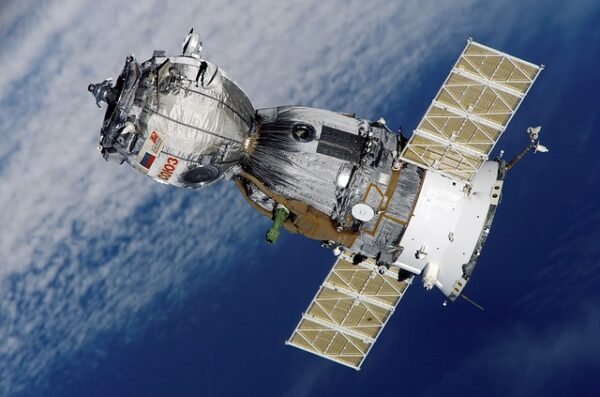On November 14, 2024, at the Ministry of Digital Governance, six new contracts for the third axis (Axis-3) of the National Small Satellite Program were signed between the European Space Agency (ESA) and five consortia, in the presence of the Minister of Digital Governance. This marks a pivotal moment in positioning Greece as a key player in Earth observation. The agreements represent significant progress in the development of Greece’s satellite system, with a focus on transforming raw satellite data into actionable insights for sectors such as agriculture, water management, forestry, land monitoring, and security.
These agreements are part of Greece’s broader National Satellite Space Project, a new initiative introduced at the end of 2023 and supported by the EU’s Recovery and Resilience Facility. The project aims to strengthen satellite infrastructure, create jobs, and stimulate economic growth, cementing Greece’s role in advancing satellite technology and data infrastructure.
What the New Contracts Mean for Greece
The latest round of contracts, focused on Axis-3 Land Monitoring Service, will establish the end-to-end system needed to process and distribute Earth observation data efficiently. This system will not only improve Greece’s capacity to monitor key environmental sectors but also enhance safety and security efforts. The services created will be hosted on a robust government infrastructure, ensuring that satellite data is accessible to the relevant public and governmental entities.
Simonetta Cheli, ESA’s Director of Earth Observation Programmes, highlighted the importance of this collaboration, stating, “Built on a strong partnership between the Greek government, industry, and ESA, the Greek National Satellite Space Project exemplifies the power of collaboration, positioning Greece as a key player in Earth observation.” She further emphasized the broader European impact, noting that the system’s future availability will benefit not only Greece but also Europe as a whole.

Key Areas of Focus
The system will be designed to turn raw satellite data into systematic, coherent, timely and actionable information tailored to meet specific needs of users for five key areas: the monitoring of agriculture, forests, water, land, and for safety and security.
These services will be hosted on the governmental hub IT infrastructure, covered by the 6th Axis-3 contract.
Consortia and Contractors
The leaders of each consortium are: Planetek Hellas for the Government Hub project and the security services project, AgroApps for agricultural monitoring services, Aristotle University of Thessaloniki for forest monitoring, Totalview for water monitoring, and GEOSYSTEMS HELLAS S.A. for land monitoring.
- Planetek Hellas, with sub-contractors Space Hellas, Neuropublic and Knowledge, for the governmental hub of the Greek satellite constellation. As laid out in the contract, Planetek will deliver an integrated end-to-end hub capable of processing and disseminating data generated by the Earth observation satellites that Greece plans to launch. The hub will serve as the central processing unit for all data collected, ensuring seamless distribution and accessibility for various governmental entities.
- AgroApps as prime contractor, with sub-contractors Space Hellas, EOFarm, Agricultural University of Athens, Cloud Signals and TotalView, to implement the agriculture monitoring service, focusing on mapping crop types, monitoring soil moisture and crop growth.
- Planetek Hellas as prime contractor, with sub-contractors NTUA, NOA, FORTH, KEMEA and KETYAK, to implement the safety and security service, focusing on flood risk assessment, wildfire analysis and surveillance, and target identification such as ships.
- Aristotle University of Thessaloniki as prime contractor with Geosystems Hellas as co-prime contractor, and sub-contractors NERCO and MPLegal, to implement the forest monitoring service, focusing on forest type and forest fuel mapping, and forest and natural area monitoring.
- TotalView as prime contractor with ICCS as co-prime contractor, with sub-contractors CDXi Solutions, KEMEA, and Thessaloniki Water Supply and Sewerage Co., to implement the water monitoring service, focusing on water quantity and quality, and maritime surveillance.
- Geosystems Hellas as prime contractor with FORTH and NOA as co-prime contractors, and sub-contractors Consortis Geospatial, University of Patras, NTUA, WINGS ICT and MPLegal, to implement the land monitoring service, focusing on land use and land cover mapping, deformation monitoring, and an urban analytics service that includes urban heat islands, public health and air quality.
Looking Ahead
As Greece moves forward with the National Satellite Space Project, the country is not just improving its own infrastructure but also contributing to a broader European initiative. With the collaboration of local industry, government, and the European Space Agency, Greece is poised to become a key player in the rapidly evolving field of Earth observation, paving the way for innovation, economic growth, and environmental stewardship.
Source: European Space Agency














